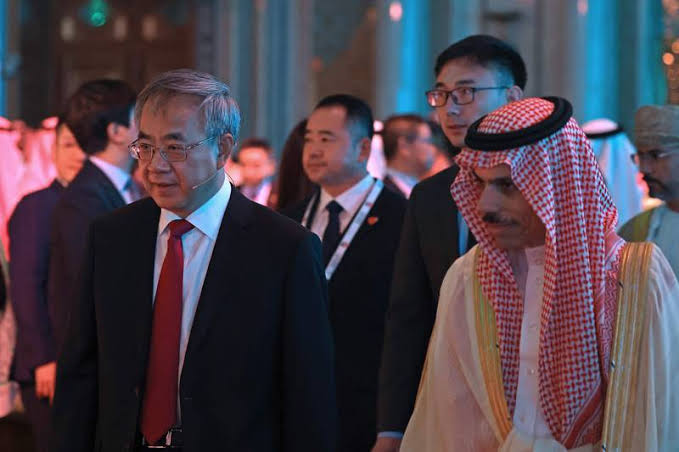
Islamabad, June 12 (INP): Arab Chinese Business Conference is a testament to the enduring commitment between Saudi Arabia and China to foster robust economic ties.
It offers businesses and investors a platform to establish partnerships, explore growth avenues, and leverage each other’s strengths, according to a report published by Gwadar Pro on Monday.
Saudi Arabia hosted the much-anticipated 10th session of the Arab-Chinese Business Conference and the eighth Investment Symposium in Riyadh.
This prestigious event, scheduled for June 11-12, was a collaborative endeavor between the Kingdom’s Ministry of Investment, Ministry of Foreign Affairs, the esteemed Arab League’s secretary-general, the Chinese Council for the Promotion of International Trade, and several other government entities.
This shared determination to enhance economic cooperation aims to drive sustainable development and prosperity for both nations.
The conference opens avenues for comprehensive exchanges, emphasizing the immense potential in the harmonious collaboration between the Arab and Chinese worlds.
Topics on the agenda span from China’s transformative Belt and Road infrastructure initiative to renewable energy solutions, pharmaceutical advancements, startups, sustainable tourism practices, and food security.
Building upon a rich history of mutual cooperation and friendship that traces back to the ancient Silk Road, China envisions the Middle East as an esteemed partner in the grand endeavor of the Belt and Road Initiative.
This visionary initiative, rooted in the principles of cooperation, partnership, human development, and peace, seeks to usher in prosperity for all nations involved.
By utilizing existing cooperation mechanisms, both regions are set to integrate their development strategies seamlessly. This will expedite the signing of cooperation Memorandums of Understanding and the initiation of cooperative development projects.
These strategic steps will lay the foundation for a myriad of joint initiatives, propelling trade, infrastructure, and economic growth to new heights.
The Belt and Road Initiative serves as a catalyst for inclusive and sustainable development, with China and the Middle East being steadfast partners.
As the initiative gains momentum, the collaboration between China and the Middle East stands as a shining example of global cooperation, underpinning a future marked by unprecedented advancements and strong ties.
The conference also underscores the unprecedented deepening relationship between China and Saudi Arabia. The year began with a landmark achievement as Beijing played a pivotal role in brokering the Saudi-Iranian agreement, leading to the resumption of diplomatic ties between these long-standing rivals.
Saudi Arabia joined the ranks as a dialogue partner of the Shanghai Cooperation Organization, strengthening their strategic bond. Furthermore, Saudi oil giant Aramco signed a significant deal with China’s Baosteel in May to construct a state-of-the-art steel factory within the kingdom.
This partnership signifies the immense economic potential that lies at the intersection of their industries.
China holds the distinction of being Saudi Arabia’s largest trading partner, while the kingdom has emerged as one of China’s primary oil suppliers, only recently surpassed by Russia earlier this year. In 2022, trade between Arab countries and China witnessed a remarkable surge, amounting to SR1.6 trillion ($430 billion), reflecting a substantial 31 percent rise compared to the previous year. Saudi Arabia took the lead in this dynamic exchange, as trade between the kingdom and China alone reached approximately SR400 billion ($106 billion), marking an impressive 30 percent increase from the preceding year’s figures.
These robust trade numbers exemplify the growing economic ties and mutual benefits enjoyed by both Arab countries and China, setting the stage for further prosperous collaborations in the future.
China and Arab nations have recognized the potential for fruitful collaboration within the framework of the Belt and Road Initiative, embracing pragmatic cooperation to foster progress.
As the Middle East undergoes transformative changes, Chinese investors are presented with new and promising avenues, particularly in cutting-edge industries such as high technology and emerging strategic sectors.
This encompasses investments in infrastructure, energy, natural resources, production capacity, and commercial activities, igniting fresh opportunities for growth and development.







